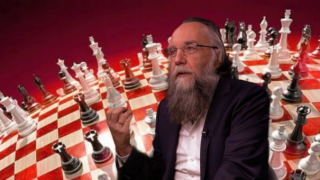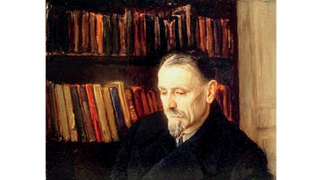Alain de Benoist: Milestones for a century's end
The critique, both historical and conceptual, of liberal ideology, conducted in every domain and successively extending itself, has permitted the clear identification as liberal mythemes – the founding mythemes, the constitutive elements of modernity - of themes as varied as the apology for selection inspired, via social Darwinism, by an essentially competitive economic model (the selection of the best performers on the marketplace); the ideology of work, inevitably linked to the productivist conception of life; the axiomatic system of interest, in contrast to the traditional system of spending and giving; the exaltation of techno-science, within the bourgeois cult of “always more”; the obsession with measurable performance; without forgetting the metaphysics of subjectivity, originally linked to Cartesian individualism, whose nature doesn't fundamentally change when the individual “me” cedes its place to the collective “we”, as Heidegger has shown.
A direct consequence of this analysis is the observation that these liberal mythemes are also present in ideologies that are sometimes wont to oppose liberalism. For example, numerous are the nationalisms which, on the basis of the metaphysics of subjectivity and axiomatic collective interest, re-claim work-value and Taylorism, of a multi-conflictual ideology making the “tribunal of history” the equivalent of Smith's “invisible hand,” of a homogenizing normativism leading to the exclusion of “deviants” and an irrational will to power (but not disdaining appealing to calculating reason) which is only ever a supplementary form of the bourgeois ideology of the mastery and seizure of a world fundamentally perceived as an object and system of objects. As for modern racism, who does not see today that it would be unthinkable without the ideology of progress (which in principle legitimizes the devaluation of traditional societies of the third world, on the pretext that they would be lower performing, less desirous to “succeed” materially, and thus less “civilized”), without the obsession with quantifiable measurement (which suggests that the differences between peoples and cultures can be “scientifically” evaluated) and without the Darwinian or Hobbesian idea that life is only competition and combat, and not love and cooperation also, and that man is fundamentally a selfish being who doesn't have another goal in life but constantly seeking to maximize his best self interest?
This observation is evidently not innocent. Suddenly, technology loses its “Promethean” virtues only reflecting the grasp of mechanization on the living. Suddenly, the critique of standardization also passes through the rejection of exclusions decreed in the name of dominant norms. Suddenly, the refusal of a homogeneous world precedes a reflection on pluralism, the limits of the nation state, the legitimacy of communities, and the necessity of a return to basic democracy. Suddenly, the will to power itself becomes a “will to will”; that is to say a simple desire for mastery becoming its own end and transforming all beings around it into objects. Suddenly, the social can no longer be confounded with the economic and relegated below it even less so, but, on the contrary, should become a privileged subject of thought, for example focusing on the presuppositions of sociality (the indispensable social link of desiring to live together) or on the necessity of recreating public spaces from the base.
Preface to Le Grain de Sable, pg. 11-13
Source: http://www.revue-krisis.com/2018/01/jalons-pour-une-fin-de-siecle-Alain-de-Benoist.html














